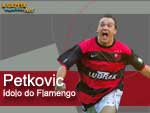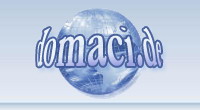 :: ::  |
| Autor |
Poruka |
shokatz
Banovan!
Početnik Domaćeg.de

 |
Godine: 39
Datum registracije: 29 Okt 2005
Poruke: 82
Mesto: subotica

|
|
Nedavno sam saznao da sam po nacionalnosti bunjevac. To me ja jako zaintrigiralo. Nazalost slabo znam nesto o njima. Postoje razne teorije o njihovom poreklu, ali nisam siguran ni u jednu pa bi voleo da se o tome malo raspravimo. Hvala
cinjenice su sledece Bunjevci su katolici koji zive na severu Vojvodine pretezno oko Subotice.
|
|
|
| |
|
 |
miskopisko
~Dream-Maker~

 |
Godine: 39
Datum registracije: 03 Sep 2005
Poruke: 4446

|
|
Nadam se da ce ti sledeci text pomoci,na engleskom je,nadam se da ti ne smeta:
Bunjevci (Serbian and Croatian: Bunjevci/Буњевци, singular Bunjevac/Буњевац, pronounced as Bunye'vtzi and Bunye'vatz, also in Hungarian: bunyevácok) are a South Slav ethnic group originally from the Dinaric Alps region, now mostly living in the Bačka region (northern Serbia or Vojvodina) and southern Hungary (particularly in the Baja region). They are Roman Catholic by faith although not all practicing. Ethnically, they register themselves either as a separate Bunjevci ethnic group or as Croats and Yugoslavs, while some also register as Serbs or Magyars.
History
The Bunjevci migrated from their previous location into Bačka in several groups in 1682, 1686, 1687. Bunjevci also live in present-day Lika, western Herzegovina as well as the Dalmatian hinterland (in the region of the mountains of Dinara and Svilaja), but there they do not register as an ethnic group and rather foster a devout sense of Croatdom.
There are several explanations for their name, most common of which is that it comes from the river Buna in central Herzegovina, their supposed original homeland before their migrations. Another explanation is that it comes from the word "bunja", a type of a round house. However, it is not exactly certain from which exact part of the Dinaric Alps the Bunjevci came. They speak the ikavian štokavian dialect characteristic for northwestern Herzegovina and northern Dalmatia, which leads some to conclude that the Bunjevci originate from there.
Historic documents refer to Bunjevci with various names, some less accurate than others: Catholic Rascians or Rác Catholics, Dalmatians, Bosnians, Catholic Serbs, Vallachs-Catholics etc. The 19th century brought on a period of nationalism, including Magyarization and the Croatian romantic nationalism. Some Bunjevci developed a Croat national feeling in the 20th century. The Hungarian royal censa also started registering "Croats" rather than regionally named groups. However, Magyarization seems to have more of an effect than Croatization since the census of 1910 recorded many citizens of Hungarian mother tongue in parts of Bačka-Bodrog inhabited by the Bunjevci. It is estimated that a few tens of thousands of Bunjevci were Magyarized. However, Croatdom remained strong among segments of the clergy, notable, the bishop of Subotica Ivan Antunović (1815–1888) supported the notion of calling Bunjevci and Šokci with the name Croats.
1880 saw the founding of the Bunjevačka stranka, an indigenous political party. During this time, opinions varied on whether the Bunjevci should try to assert themselves as a standalone ethnic group, or side with either the Serbs or the Croats. Nationally, the Magyar censa from 1880 onward to 1910 numbered the Bunjevci distinctly. They were referred to as "Catholic Serbs" but the censa nevertheless separated them from the Serbs proper.
In October 1918, Bunjevci held a national convention in Subotica and decided to secede Vojvodina from Hungary and join Serbia. This was confirmed at the Great National Assembly of Serbs, Bunjevci and other Slavs in Novi Sad, which proclaimed unification with the Kingdom of Serbia in November of 1918. The subsequent creation of the Kingdom of the Serbs, Croats and Slovenes (renamed Yugoslavia in 1929) brought most of the Bačka Bunjevci in the same country with the Croats (with some remaining in Hungary).
After 1945, in Communist Yugoslavia the census of 1948 did not officially recognize the Bunjevci, and instead merged their data with the Croats. However, it did not try to assimilate them otherwise, given that the Bunjevac schools in Vojvodina also taught the Serbian version of the unified language. Proponents of a distinct Bunjevac ethnicity regard this as another dark period of encroachment on their identity.
Following the breakup of Yugoslavia in the 1990s, the renewed Bunjevac national movement was officially recognized as a minority group in Serbia in 1990. The community, however, has been divided around the issue of the name: in the 1991 census, in terms of ethnicity, around 21,434 inhabitants of Vojvodina declared themselves Bunjevci whereas some 74,808 declared themselves Croats; in 2002, there were 19,766 Bunjevci and around 56,546 Croats in Vojvodina. Note that not all of the Croats in Vojvodina necessarily have Bunjevac roots. Many Bunjevci also declared themselves as Yugoslavs.
In the Subotica region, there were 17,439 Bunjevci and 16,369 Croats in 1991. The historically Bunjevac village of Donji Tavankut had 989 Bunjevci, 877 Croats, and 600 Yugoslavs, the latter probably being a reaction to national ambiguity and pressures at the time. A 1996 survey by the local government in Subotica found that in the community, there are many people who declare as Croats and consider themselves Bunjevci, but also some people who declare as Bunjevci but consider themselves part of the wider Croatian nation. The same survey found that the delineation between the pro-Croat and pro-Bunjevac positions correlated with the delineation between the people who were more supportive towards the then ruling regime in Serbia that did not favor special rights for national minorities, and conversely those who were against the then government and more interested in minority rights and connections with their second homeland.
Today, both major parts of the community (the pro-independent Bunjevac one and the pro-Croatian one) continue to consider themselves ethnologically as Bunjevci, although each subscribing to its interpretation of the term.
In early 2005, the Bunjevac issue was again popularized when the Vojvodina government decided to allow the official use of "bunjevački language with elements of national culture" in schools in the following school year — the štokavian-ikavian dialect. This was protested by the Croatian Bunjevac community as an attempt of the government to widen the rift between the two Bunjevac communities. They favour integration, regardless of whether some people declared themselves distinct, because minority rights (such as the right to use a minority language) are applied based on the number of members of the minority. Subsequently, it may happen that schools would teach the same dialect but in two separate classes, one named bunjevački jezik, one hrvatski jezik, based solely on the preference of the parents.
Bunjevac villages
The villages in Vojvodina with Bunjevac majority are:
Ljutovo
Bikovo
Gornji Tavankut
Donji Tavankut
Đurđin
Mala Bosna
Stari Žednik
All villages are located in the Subotica municipality. According to the 2002 census, Bunjevac population in all of these villages was divided about their ethnic identification, since part of the Bunjevac population declared themselves as Bunjevci, and another part as Croats. However, only in the village of Ljutovo, the number of Bunjevci who declared themselves as such is larger than the number of those who declared themselves as Croats.
Culture
Traditionally, Bunjevci are associated with land and farming. Large, usually isolated farms in Northern Bačka are called salaši, and historically most of Bunjevci people are associated with them. Most of their customs celebrate the land, and the most famous festival is Dužijanca — celebration of harvest end. Dužijanca consists of several events held in Bunjevci-populated places (Bajmok, Tavankut), with the central celebration held in Subotica. Dužijanca includes religious celebrations devoted to harvest, street procession and performing of Bunjevci folklore and music.
Musician Zvonko Bogdan is the best known Bunjevac, and his songs (composed or traditional) have popularized Bunjevac culture and tradition across Serbia and the rest of former Yugoslavia.
Footballer Goran Bunjevčević is possibly the best known Bunjevac internationally, and has represented Serbia and Montenegro. He currently plays for the English Premiership club Tottenham Hotspur.
Bunjevačke novine (Bunjevac newspaper) are newspaper in Bunjevac language/dialect published in Subotica.
|
|
|
| |
|
 |
Zloky
Dobro upućeni član

 |
Godine: 37
Datum registracije: 17 Jan 2006
Poruke: 687
Mesto: Buna

|
|
Bunjevci su porjeklom sa moje Bune 
|
_________________
Ništa mi ne može ovaj DaN pokvarit!!!!!!!!!!!!! |
|
| |
|
 |
micica1981
Početnik Domaćeg.de

 |
Godine: 43
Datum registracije: 08 Maj 2006
Poruke: 41
Mesto: CACAK

|
|
I ja sam skoro sazlala da postoje Bunjevci... Tek tada sam shvatila koliko malo znam o ljudima koji me okruzuju.... Inace, tekst je odlican i ja sam ga procitala na sajtu wikipedie!
Nije vazno koje smo vere i nacije, vazno je da ne zelimo da se ubijam kad se vidimo....
|
_________________
Ljudi ulaze u nase zivote sa razlogom! Nova iskustva mogu biti samo dobra jer sluze da nas oblikuju u onakvu osobu kakva jeste ili kakva cete biti!!! |
|
| |
|
 |
nevaljalimacak
Početnik Domaćeg.de

 |
Godine: 42
Datum registracije: 20 Nov 2006
Poruke: 5

|
|
Zvonko Bogdan je Bunjevac.
Mislim da nije vazno sta su ti preci, jer i ja imam pretke sa raznih strana. Pripadnost naciji se gleda i po nekim drugim kriterijumima, a ne samo po srodstvu. Recimo, ako si pravoslavac onda si Srbin, a ako si katolik Hrvat (ili Bunjevac), s druge strane mozes da pripadas ovim nacijama i ako nisi hriscanin, ali ako vec jesi onda se priklanjas i nacionalnoj crkvi.
|
|
|
| |
|
 |
zorbos
Početnik Domaćeg.de

 |
Godine: 40
Datum registracije: 03 Sep 2006
Poruke: 13
Mesto: novi sad

|
|
Kako postoji mnoštvo podataka ,ali nedovoljno utemeljenih podataka o njihovom poreklu to upravo i otvara vrata za postavljanje pitanja ko su ,šta su i odakle su.
Više puta su Hrvati pokušavali da reše pitanje Bunjevaca i Šokaca u severnoj Bačkoj ,Baranji i to upravo zbog teškog mirenja sa činjenicom da su bunjevci Srbi katoličke veroispovesti,poreklom iz Hercegovine sa reke Bune po kojoj su i dobili ime ,a po nekim autorima smatra se da potiču i iz severne Dalmacije.
Pre Prvog svetskog rata provođen je proces mađarizacije Bunjevaca,a posle rata a pogotovo posle Drugog svetskog rata, na delu je bio proces intenzivnog pohrvaćenja.
Bunjevaca u Mađarskoj više i nema jer je proces mađarizacije skoro u potpunosti završen.
I komunizam je pokušao da ih satre i uništi već gore pomenutim dekretom, a sve iz razloga što neće da se pokore hrvatstvu ,i koristi jačanja Hrvatskog nacionalnog identiteta na severu Vojvodine odnosno Srbije.
Dakle Bunjevci su Srbi katolicke veroispovesti!
|
_________________
Disko is not dead! ! ! |
|
| |
|
 |
stimi
Početnik Domaćeg.de

 |
Godine: 58
Datum registracije: 02 Dec 2002
Poruke: 148
Mesto: off

|
|
|
Bunjevci su južnoslovenski narod, naseljeni pretežno u severnoj Bačkoj (najviše u Subotici), ali ih sporadično ima i u Baranji, Banatu, kao i u čongradskoj i peštanskoj županiji današnje Mađarske. Katoličke su veroispovesti, a kulturno i političko središte im je Subotica, u kojoj, prema popisu iz 2002, čine 11% stanovništva. Pretežno govore srpskim ili hrvatskim jezikom (ikavski i ijekavski dijalekat). Prema popisu stanovništva iz 2002. godine, Bunjevaca je u Srbiji bilo 20.012, od kojih je 19.766 živelo u Vojvodini. 1910. godine bilo je Bunjevaca i Šokaca u nekadašnjoj bačkoj i baranjskoj županiji oko 90.000. Ranije su ih beležili kao Dalmate, katoličke Race i Ilire
|
|
|
| |
|
 |
zorbos
Početnik Domaćeg.de

 |
Godine: 40
Datum registracije: 03 Sep 2006
Poruke: 13
Mesto: novi sad

|
|
Hrvati u vojvodini oce da asimiluju bunjevce ...tako sto im u subotici u katolickoj crkvi nisu dozvoljavali da slave njihov praznik dan zita , gde se prvi hleb od prve zetve odnosi u crkvu!
Lokalno svestenstvo im prosle godine nije dozvolilo samo zato sto su se na popisu izjasnili kao bunjevci a ne kao hrvati!
|
_________________
Disko is not dead! ! ! |
|
| |
|
 |
|
|
Vi ne možete otvarati nove teme u ovom forumu
Vi ne možete odgovarati na teme u ovom forumu
Vi ne možete menjati Vaše poruke u ovom forumu
Vi ne možete brisati Vaše poruke u ovom forumu
Vi ne možete glasati u anketama u ovom forumu
Vi ne možete postavljati fajlove u ovom forumu
Vi ne možete preuzeti fajlove sa ovog foruma
|
|














